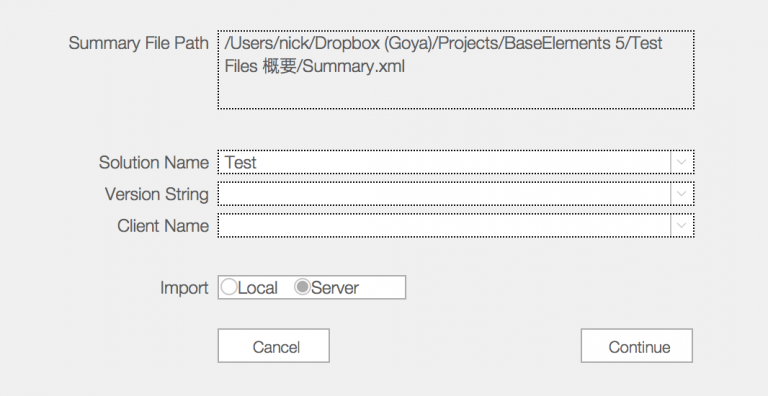

Let us understand it by implementing POM for percent calculator test. There are various calculators associated with it and each one of those objects in a particular page is created in a separate class file as static methods and they all are accessed through the 'tests' class file in which a static method would be accessing the objects. FileMaker Plug-ins & add-ons: FMPerception, BaseElements, Productive Computing’s FMBooks Connector, Geist Interactive’s fmQBO, 360Works plug-ins and add-ons. Objects are created for each one of the pages and methods are developed exclusively to access to those objects.
#Github baseelements update
Since objects are created once, it is easy to access as well as update a particular property of an object. An object can be accessed by one or more test scripts, hence POM helps us to create objects once and use them multiple times. The objects are kept independent of test scripts.


It will also save the output of the tool into a text field for your review. POM is an implementation where test objects and functions are separated from each other, thereby keeping the code clean. The Soliant tool can help you understand this new FileMaker tool and requires the free BaseElements plugin. Page Object Model (POM) is a popular design pattern to create an Object Repository in which each one of those webelements properties are created using a class file. Hence we need to build an OR which should also be maintainable and accessible on demand. Unlike QTP which has an inbuilt object repository(OR), Selenium has no inbuilt ORs. Selenium acts on webelements with the help of their properties such ID, name, XPath, etc.


 0 kommentar(er)
0 kommentar(er)
